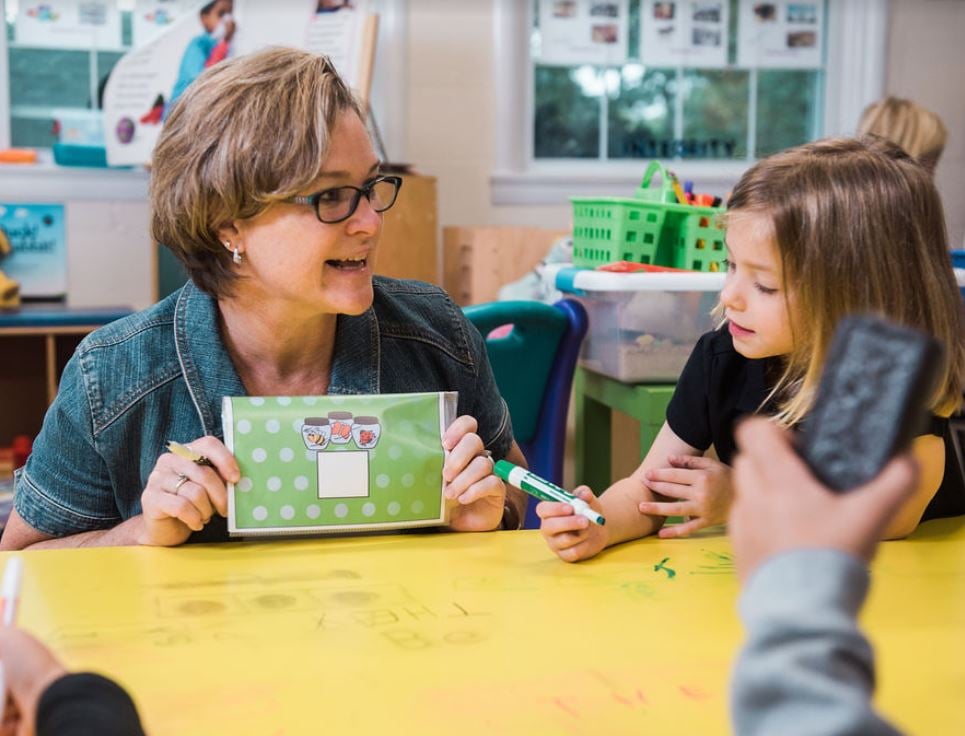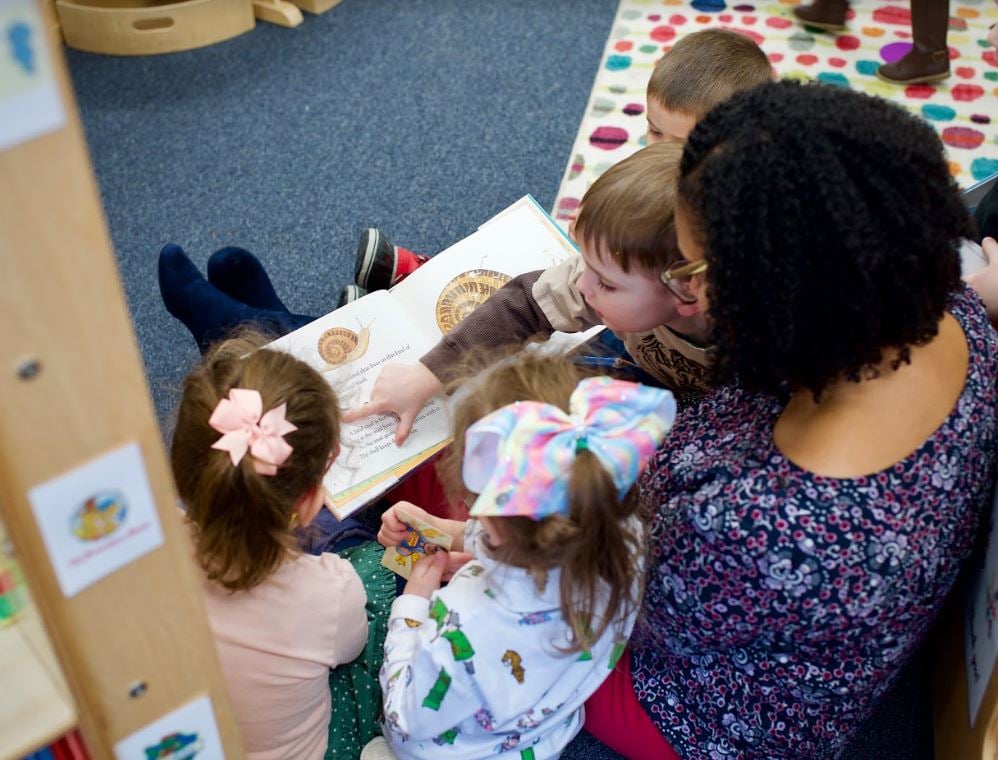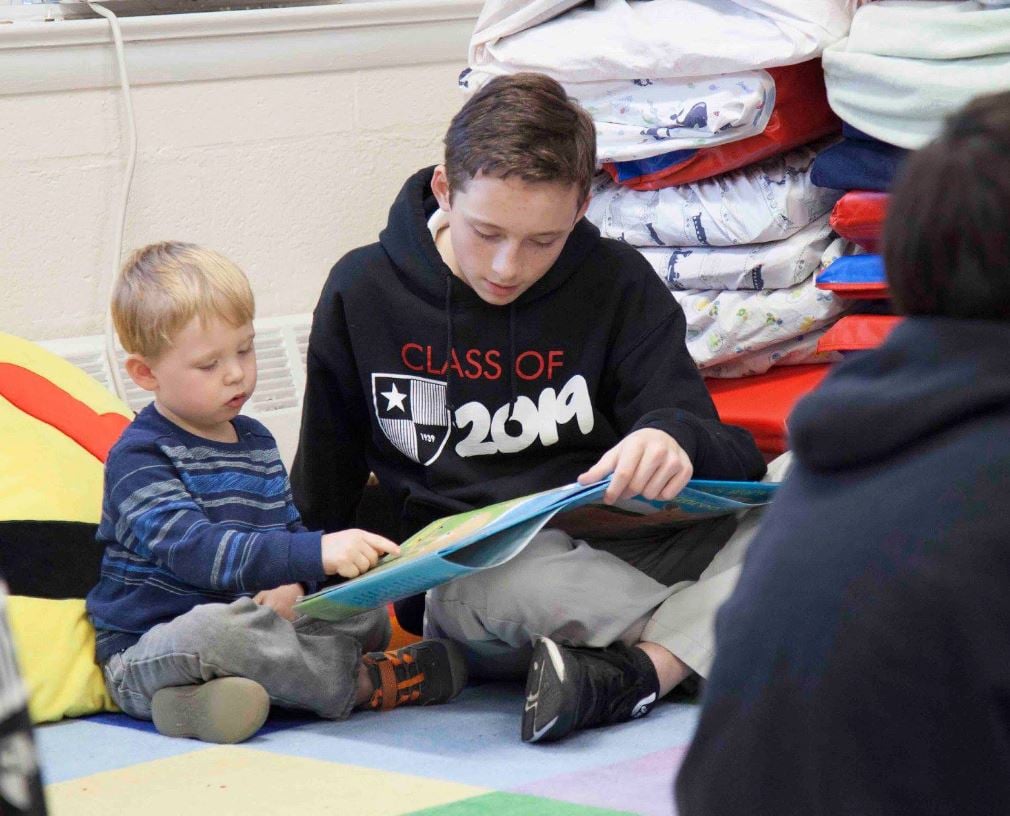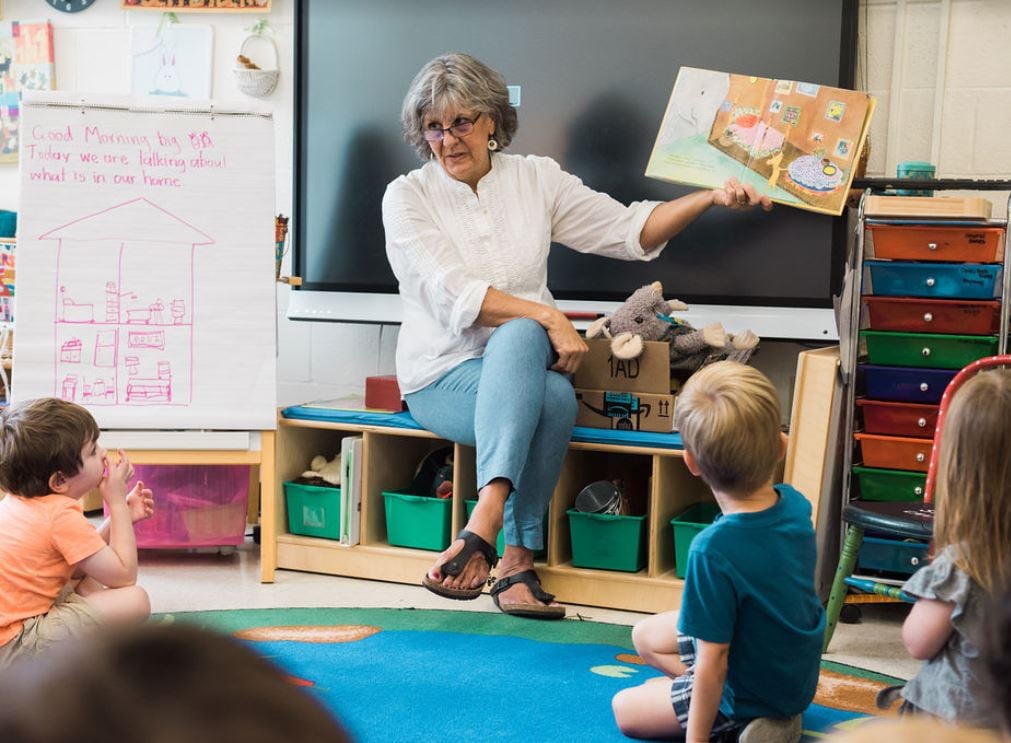By Stefanie Hjalmervik, Learning Specialist

Most parents understand the importance of reading to their children, but many parents might not realize the extent of the power that reading aloud brings to their child’s cognitive and literary development. In a recent survey, nearly 97% of parents of children aged 6-8 reported that reading was very important to them, but only 45% reported reading aloud to their children 5-7 nights a week (Scholastic, 2019).
For many children, hearing a book read aloud is a cherished activity at school and at home, and children of all ages benefit from listening to books being read aloud. In the quiet moments that occur while reading to children, no matter the age, children are increasing their listening skills, expanding their vocabulary, stimulating their imagination, and for young children, preparing for the written word.
“Hearing a story from a parent, provides a pleasant and valuable learning experience, helping children develop critical listening skills. With each shared book, children see parents as role models for reading."
Stefanie Hjalmervik, Learning Specialist

Reasons to Read Aloud
- As students prepare to read and write, the exposure to age-appropriate shared books and read aloud enhances their vocabulary and understanding of language which differs from daily language and television.
- Sharing stimulating books that foster imagination lets parents and children explore new worlds and different times and places together.
- Hearing a story from a parent, provides a pleasant and valuable learning experience, helping children develop critical listening skills. With each shared book, children see parents as role models for reading.
- The conversation that takes place before, during, and after reading is the interaction that helps them learn how to make sense of the story.

How to fit reading aloud into a busy schedule:
- Routine reading at bedtime or naptime
- Doctors/dentist waiting room
- Any quiet moment
How to effectively read aloud:
The following comprehensive list provides a way to enhance the reading experience for both child and parent. Regardless of how thorough the reading time is, every opportunity to read is valuable.
Before reading aloud:
- Pre-read: Talk about what the book may be about, or, for longer books, what happened in the book already.
- Make predictions: What might happen and why
While reading aloud:
- Vary expression, intonation, and tone of voice
- Use silly sounds and voices that match the character and situation, this enhances the experience and develops comprehension because it brings the characters to life.
- Adjust the pace to match the event. The pace keeps readers glued to the story.
- Slow down to build suspense
- Speed up to add excitement
- Stop periodically to talk
- Talk about thoughts, feelings, expectations. This help develops a connection to the text and builds a better understanding of social and emotional situations presented in the book. It is also an excellent opportunity to teach ways to respond to situations.
- Look at the pictures and talk about the difference between what they imagined and what the illustrator drew.
- Talk about the pictures, character traits, events, and mood of the story. If there are few/no pictures, talk about what they imagine the character or scene looks like. This helps create a movie that enhances comprehension and is a powerful tool in reading.
After reading aloud:
- Talking about new words and their meaning in the story helps children expand their language.
- Pose questions
Discussion at the end of reading is a powerful way to enhance a child’s connection to their own life. It reinforces ideas and events that aid recall. It is an opportunity to make sense of complex ideas or possible outcomes or future events. Most of all this discussion is a chance to talk about the book together, building a connection to the book and a special moment for both parent and child. The more books shared, and discussions had, the more children will engage in books and develop connections to the characters and the stories themselves. Whether you do one or all these things when you read aloud with your child, it is a worthwhile and valuable experience and quality time well spent.

References
Beck, I. L., & McKeown, M. G. (2001). Text Talk: Capturing the benefits of re-aloud experiences for young children. The Reading Teacher, 10-21.
Cullinan, B., & Bagert, B. (n.d.). Reading to your Child. Retrieved from Reading Rockets: http://www.readingrockets.org/article/reading-your-child
NAEYC and International Reading Association. (1998). Learning to Read and Write: Developmentally Appropriate Practices for Young Children. National Association for the Education of Young Children, 30-46.
NEA. (N.D). National Education Association. Retrieved from Helping Your Child Learn to Read: http://www.nea.org/home/59869.htm
Scholastic. (2019, January). Scholastic Reading Report. Retrieved from Scholastic: http://www.scholastic.com/readingreport/reading-aloud.htm

Stefanie Hjalmervik
Learning Specialist






